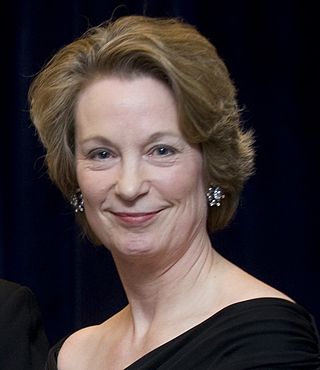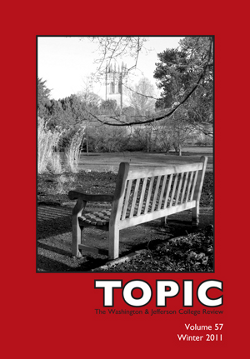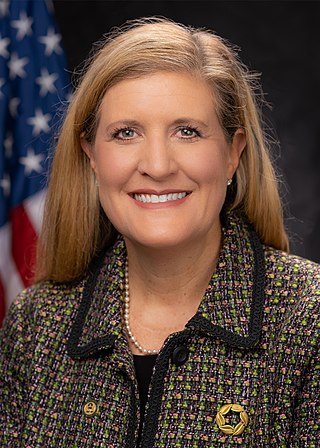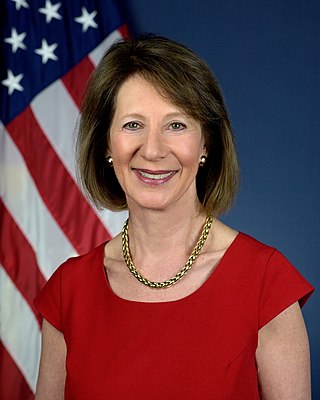Related Research Articles

Dwight David Eisenhower, nicknamed Ike, was an American military officer and statesman who served as the 34th president of the United States from 1953 to 1961. During World War II, he was Supreme Commander of the Allied Expeditionary Force in Europe and achieved the five-star rank as General of the Army. Eisenhower planned and supervised two of the most consequential military campaigns of World War II: Operation Torch in the North Africa campaign in 1942–1943 and the invasion of Normandy in 1944.

The National Mall is a landscaped park near the downtown area of Washington, D.C., the capital city of the United States. It contains and borders a number of museums of the Smithsonian Institution, art galleries, cultural institutions, and various memorials, sculptures, and statues. It is administered by the National Park Service (NPS) of the United States Department of the Interior as part of the National Mall and Memorial Parks unit of the National Park System. The park receives approximately 24 million visitors each year. Designed by Pierre L'Enfant, the "Grand Avenue" or Mall was to be a democratic and egalitarian space—unlike palace gardens, such as those at Versailles in France, that were paid for by the people but reserved for the use of a privileged few.

The George Washington University is a private federally-chartered research university in Washington, D.C. Originally named Columbian College, it was chartered in 1821 by the United States Congress and is the first university founded under Washington, D.C.'s jurisdiction. It is one of the nation's six federally chartered universities.

The Index of Economic Freedom is an annual index and ranking created in 1995 by The Heritage Foundation and The Wall Street Journal to measure the degree of economic freedom in the world's nations. The creators of the index assert that they take an approach inspired by Adam Smith's The Wealth of Nations, that "basic institutions that protect the liberty of individuals to pursue their own economic interests result in greater prosperity for the larger society".

Energy conservation is the effort to reduce wasteful energy consumption by using fewer energy services. This can be done by using energy more effectively or changing one's behavior to use less and better source of service. Energy conservation can be achieved through efficient energy use, which has some advantages, including a reduction in greenhouse gas emissions and a smaller carbon footprint, as well as cost, water, and energy savings.

Washington & Jefferson College is a private liberal arts college in Washington, Pennsylvania, United States. The college traces its origin to three Presbyterian missionaries in the 1780s: John McMillan, Thaddeus Dod, and Joseph Smith. Early schools grew into two competing academies, with Jefferson College in Canonsburg, Pennsylvania, and Washington College in Washington. The two colleges merged in 1865 to form Washington & Jefferson College. The 60-acre (24 ha) campus has more than 40 buildings, with the oldest dating to 1793. The college has a strong history of competing literary societies, dating back before the union of Jefferson and Washington Colleges. The athletic program competes in NCAA Division III. Nearly all students live on campus and roughly one-third are members of fraternities or sororities.

Eleanor Irene Clift is an American political journalist, television pundit, and author. She is a contributor to MSNBC and blogger for The Daily Beast. She is best known as a regular panelist on The McLaughlin Group. Clift is a board member at the IWMF.
Energy demand management, also known as demand-side management (DSM) or demand-side response (DSR), is the modification of consumer demand for energy through various methods such as financial incentives and behavioral change through education.
Green computing, green IT, or ICT sustainability, is the study and practice of environmentally sustainable computing or IT.

The Nuclear Threat Initiative, generally referred to as NTI, is a non-profit organization located in Washington, D.C. The American foreign policy think tank was founded in 2001 by former U.S. Senator Sam Nunn and philanthropist Ted Turner and describes itself as a "nonprofit, nonpartisan global security organization focused on reducing nuclear and biological threats imperiling humanity."

In political studies, surveys have been conducted in order to construct historical rankings of the success of the presidents of the United States. Ranking systems are usually based on surveys of academic historians and political scientists or popular opinion. The scholarly rankings focus on presidential achievements, leadership qualities, failures, and faults. Popular-opinion polls typically focus on recent or well-known presidents.

The Dwight D. Eisenhower Memorial is a United States presidential memorial in Washington, D.C. honoring Dwight David Eisenhower, the Supreme Commander of the Allied Forces in Europe during World War II and the 34th President of the United States.

United States energy independence is the concept of eliminating or substantially reducing import of petroleum to satisfy the nation's need for energy. Some proposals for achieving energy independence would permit imports from the neighboring nations of Canada and Mexico, in which case it would be called North American energy independence. Energy independence is espoused by those who want to leave the US unaffected by global energy supply disruptions and would restrict reliance upon politically unstable states for its energy security.

Efficient energy use, or energy efficiency, is the process of reducing the amount of energy required to provide products and services. There are many technologies and methods available that are more energy efficient than conventional systems. For example, insulating a building allows it to use less heating and cooling energy while still maintaining a comfortable temperature. Another method is to remove energy subsidies that promote high energy consumption and inefficient energy use. Improved energy efficiency in buildings, industrial processes and transportation could reduce the world's energy needs in 2050 by one third.

Susan Elaine Eisenhower is an American consultant, author, and expert on international security, space policy, energy, and relations between the Russian Federation and the United States of America. She is the daughter of John Eisenhower and the granddaughter of President Dwight D. Eisenhower.

Topic: The Washington and Jefferson College Review, also known as Topic or Topic: A Journal of the Liberal Arts, is a peer-reviewed academic journal focused on the humanities and the liberal arts.

Alexandra Dapolito Dunn is an American environmental lawyer and law professor, specializing in chemical and pesticide regulation, water quality issues, water treatment issues, urban development, rule of law, environmental justice, environmental conflict resolution, cooperative federalism, and implementation of the Clean Water Act and the Frank R. Lautenberg Chemical Safety for the 21st Century Act. Dunn was an executive at several environmental management associations, and served as Regional Administrator for New England in the US Environmental Protection Agency (EPA), and Assistant Administrator for EPA's Office of Chemical Safety and Pollution Prevention.

Diana Furchtgott-Roth is an American economist who is adjunct professor of economics at George Washington University and a columnist. She served as Deputy Assistant Secretary for Research and Technology at the United States Department of Transportation during the Trump administration. She previously served as Acting Assistant Secretary for Economic Policy at the U.S. Department of the Treasury.
References
- 1 2 3 4 "Energy Index". Washington & Jefferson College Center for Energy Policy & Management. Archived from the original on April 3, 2013. Retrieved December 16, 2012.
- ↑ Karlovitz, Bob (February 23, 2013). "Washington & Jefferson College to offer stage for energy discussions". Pittsburgh Tribune-Review . Retrieved September 22, 2013.
- ↑ "Energy Index Infographic". Washington & Jefferson College Center for Energy Policy & Management. Archived from the original on January 8, 2013. Retrieved December 16, 2012.
- ↑ Luna, Taryn (April 30, 2012). "W&J College index details U.S. energy consumption". Pittsburgh Post-Gazette . Retrieved December 16, 2012.
- ↑ Dunn, Leslie; Robert Dunn (February 27, 2012). "W&J Energy Index - U.S. Energy Overview and Index Technical Notes" (PDF). Washington & Jefferson College, Department of Economics and Business. Archived from the original (PDF) on June 20, 2012. Retrieved December 16, 2012.
- ↑ Reid, Robert (Summer 2012). "Professors Design Index to Measure Nation's Progress Toward Energy Index" (PDF). W&J Magazine. Washington & Jefferson College. p. 10. Retrieved December 16, 2012.
- ↑ Stares, Diana. "The Washington & Jefferson College Energy Index" (PDF). Executive Summary. W&J Center for Energy Policy and Management. Archived from the original (PDF) on June 20, 2012. Retrieved December 16, 2012.
- ↑ "How Many College Students Does it Take to Change a Light Bulb? Electricity Usage in a Dorm Room 2001-2012" (Press release). Washington & Jefferson College. September 6, 2012. Archived from the original on September 17, 2017. Retrieved December 16, 2012.
- ↑ "Washington and Jefferson College Center for Energy Policy and Management launches first-ever W&J Energy Index". Associated Press . April 23, 2012. Archived from the original on January 17, 2013. Retrieved December 16, 2012.
- ↑ "Eisenhower and Clift Headline first W&J Energy Summit" (PDF). W&J Magazine. Washington & Jefferson College. Summer 2012. p. 11. Retrieved December 16, 2012.
